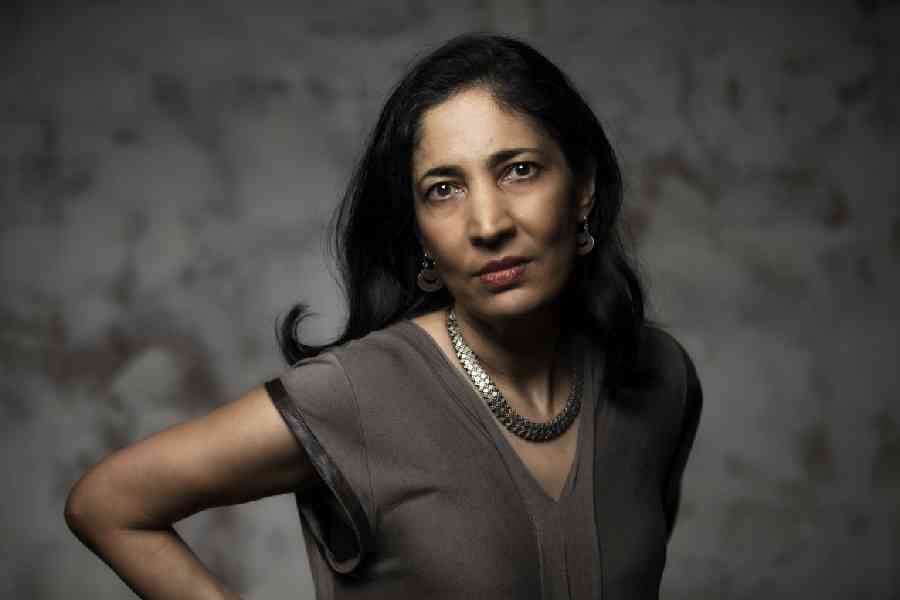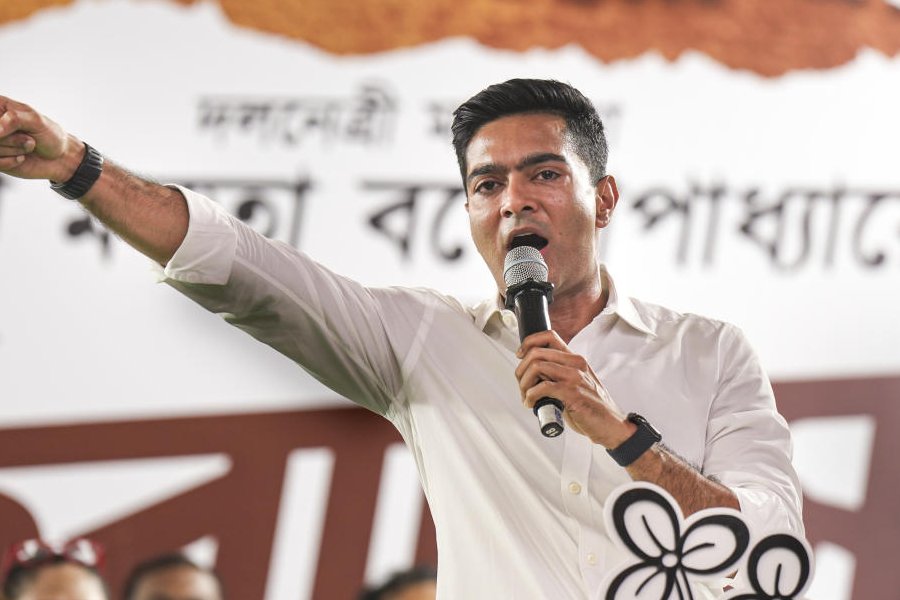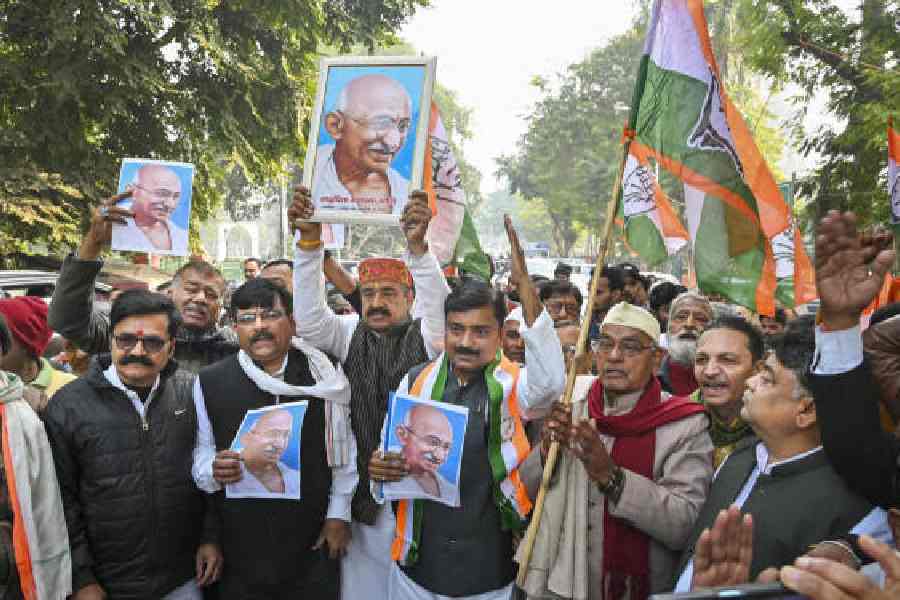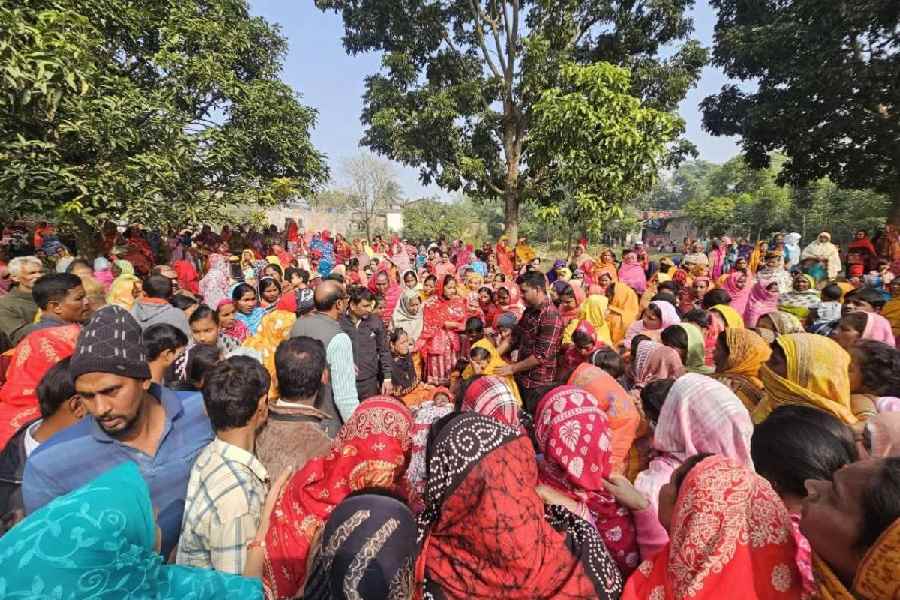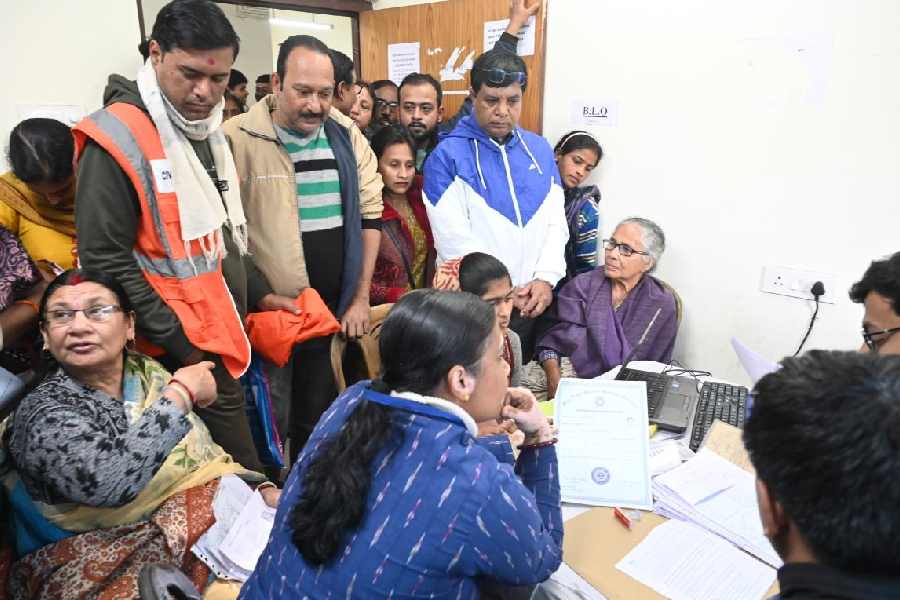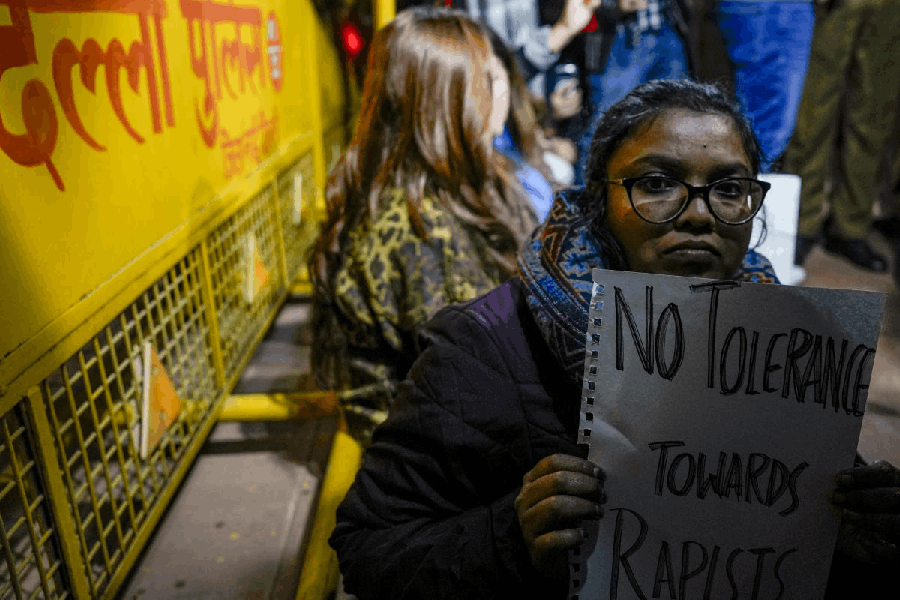Q. Congratulations on the book, that too such a voluminous one. You stayed with it for 20 years. How does one do that?
I was creating material for the future. I was keeping journals, diaries, following all kinds of themes, stories, characters. About midway through the writing process, I spread through all my pages and saw how I could construct a book, lift a book out of those pages. I ended up cutting out a lot of stories from the final book. So yes, I lived with these characters for a long time. They became very precious to me and I didn’t notice the years passing.
Q. You wrote separate stories for all the main characters…
Yeah, I wrote separate stories for all the characters, I think. Sunny has a friend called Satya, so I wrote his story, then (his wife) Puja’s story. There is a long section of the book that is very interesting to me — to write about an Indian doctor in rural America, the only foreigner in a conservative hamlet. But then I had to think what the book is really about. The title helped me focus, to think that the story is really about Sunny and Sonia. I wrote a long section about Sunny’s girlfriend Ulla, her life, just to try to understand her. I also wrote a lot of stories about the grandparents separately. Then I cut and tried to fit as many of them together as I could.
Q. Sunny and Sonia… they don’t really sound like main character names…
(Laughs) I also wanted easy names. Maybe Sunny’s name was actually something different. It is different, in fact. They say they gave the nickname Sunny because he is actually such a moody, depressed character. But Sonia is a name I think her parents would have given her. They come from a certain Westernised family, and it’s an easy name all around the world. I was also thinking about the title, the ring of it, the sound of it…
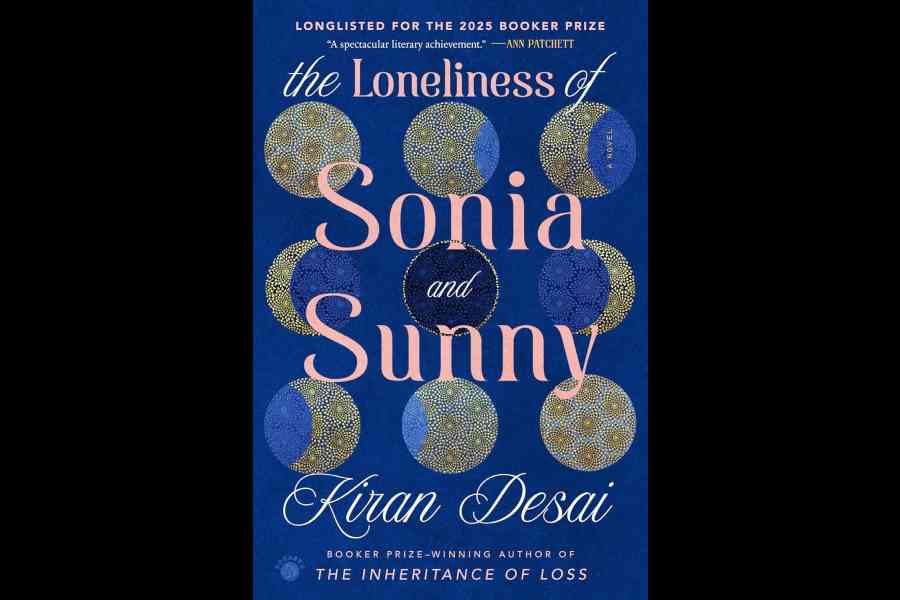
The Loneliness of Sonia and Sunny; published by Penguin Random House India
Q. Salman Rushdie has said he wishes you wouldn’t take another 20 years to write your next book. I am sure he was joking.
He may not have been because if I am going to take another 20 years, I would be seventy-fourrrr (with emphasis, rolling the ‘rs’). Then I would be writing just one more book in my life. I do want to write a few more books.
Q. I would like that too…
So, I need to think of themes that move quicker and are shorter.
Q. The Booker Prizes website describes the novel as a love story, a family saga, and a book full of ideas. But while reading it, I thought it does not neatly fit into any one genre. Would you agree?
Yes, I didn’t think it would fit neatly into any one genre because all these characters going back in time, travelling across the world, people reading and telling stories in so many different ways in these different time periods. One of the themes of this book is who gets to tell the story. And what are the obstacles to telling a story for a young writer like Sonia and a young journalist like Sunny.
Q. The novel has an atmosphere of gloom. Even when Sunny and Sonia are at their happiest, there is a sense of foreboding. It makes me sad and yet I can’t look away.
I think there is a strong sense of the unseen in this book and of foreboding, while existing on two planes — one is the ordinary light of day, the clear light of day, and also a sense that there is a wickedly plotted darker undercurrent. I was thinking of family stories and sometimes these dark themes that run in families and keep popping up again and again; they don’t necessarily go away. It also happens in the life of a country; there are dark periods of its history that also don’t really go away. And then they recur… So, both characters have this sense in the political sphere but also in the personal sphere…You are quite right in that observation.
Q. Why does it always wind down to the question of identity when it comes to fiction about non-white people?
It is a big question in this country, in the United States, of how literature of communities that are not white is published, how the minority communities feel the need for this identity politics… Everything being linked to the cult of personality but also defining yourself or standing up for yourself in a certain way against a majority culture. Of course, in India too, these are concerns that minority communities must face. But you know, I also wanted to balance the fact of these concerns against the fact of a very human situation — that we seek to escape these constraints. Sometimes these are imposed upon us, in terms of race, class, caste and also as women, there is a certain definition of how women should be in the world. We seek to escape these scriptures in so many different ways. One of the ways is through art but also through religion, travel, by coming up with different versions of ourselves.
Q. When Sunny goes to Italy, he keeps second-guessing if all the trouble he faces is due to bad luck or because of his race…
That’s because he can’t keep himself from seeing outside-in. He keeps wondering how people are looking at him and how he is appearing to them.
Q. As for Sonia, it seems like you have generously poured yourself into this character.
(Laughs) It’s true that there is a lot of Sonia in me but also not. I used the experiences of other people, things that I have observed. So it’s a combination. It is also, I would say, about myself and Sunny, you know? About living in the neighbourhoods he lived in, in New York. Like him, I have also thought about writing more journalistic pieces. Moving into an immigrant neighbourhood in New York, his relationship with Americans, all of these things. There is something of me in other characters, too.
Q. Which places or cities do you call home? I am asking this only because I am curious about your location as the author of this book. After all, you are looking at India outside-in and also from inside-out. How do you manage that?
That’s a very interesting question. While I feel at home in New York, I also realise that the Indian community outside India, the diaspora, is a very moving community. It’s a very wonderful place to work from. You can follow stories across borders. I feel comfortable now. At first, as a younger author, I was very anxious about losing the Indian landscape because I thought that was the only place where I would find the necessary historical and emotional depth that came from grandparents, parents and growing up in India. I could never find it in the United States because I didn’t have grandparents who fought for the history of the United States to unfold in one particular way or the other. So, there would be no way I could ever go that deep. On the other hand, I wouldn’t know the India of the present day because I live in the United States. I had a lot of anxiety. Then I realised that this formless place was also a good place to write from. This is where stories change and morph into different things. There’s a lack of knowledge, mysteries — that’s also a good place to work from. But it’s also sometimes difficult because you have to get the landscapes right. The place has to be right. So I was writing all the Indian bits in India, and I would go to Mexico to work on the Mexico bits.
Q. Where in India?
Mostly Delhi because that is my family home. My father continued living in India till he died in 2008. So I was going back to India. The book is dedicated to him. I could still write about India because he was still there, he would talk to me every day about his experiences, and the music he loved. I could come back to him in this cultural space. I owe him so much of what is in this book. Just as I do to my mother for the other parts of the book.
Q. Speaking of places, you have a connection with many parts of the world and that includes this geography — Bengal.
My mother’s father is from what is now Bangladesh. They lost their family land during Partition. But she was already living in Delhi when her family was in that part of the world. And my maternal grandmother was German and she also lost the landscape of Germany. And my mother grew up in a sort of found landscape in Old Delhi but she was born in Mussoorie. But Calcutta has always been there for me. My mother’s maiden name is Mazumdar, by the way. She never really lived in Bengal but her sisters did. And her brother did. And we would visit, and stay with some relatives there. Then we would go to Darjeeling and Kalimpong, where my parents had a home for some time. That part of my family is Bengali-speaking and I still have relatives in Calcutta… At one point, my mother took Bengali classes while living in Bombay because she didn’t want to lose the language. I never did, unfortunately.
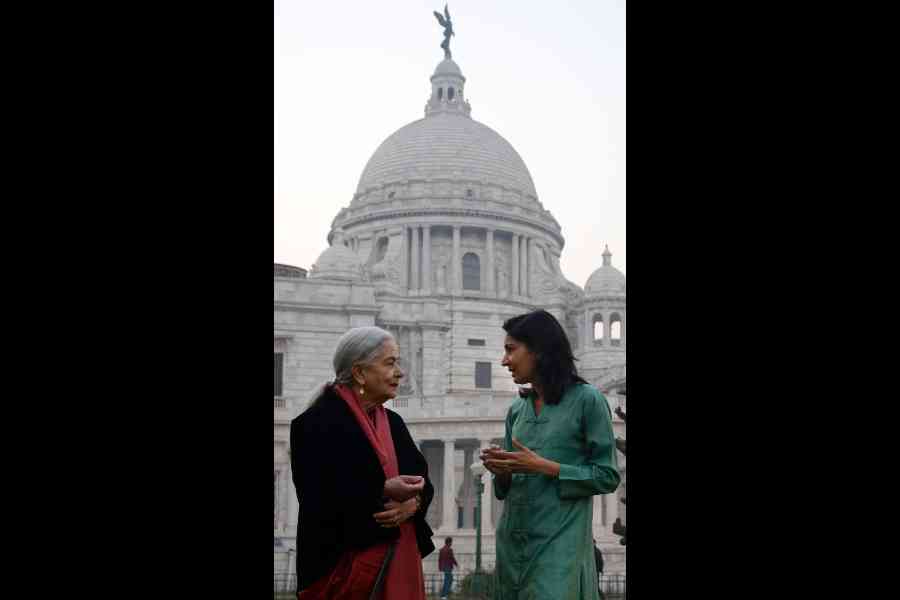
Anita Desai and Kiran Desai - Kolkata Literary Meet - Victoria Memorial Hall.
Q. What books did you read while growing up?
I read soooo much… I went to the Delhi Public Library and the British Council Library and all the bookstores of Delhi. I don’t know where my parents, my mother especially, found these books but they were just extraordinary children’s books from around the world. There used to be a Soviet book festival in India, where you would find so many beautiful books from the Soviet Union, their fairytales and folktales. There were also a lot of British children’s books on our shelves. Everything from the Enid Blyton books to Paddington Bear to, eventually, as I grew older, the Jane Austen books, Dickens and Agatha Christie. Also American children’s books.
Q. Does having a writer mother make conversations around work easier?
Yes! She completely understands the writing life, the artistic life and it’s a very strange life, actually. Especially for people who do not know it, because it requires so much solitude, it requires a lot of discipline. So her companionship has been extraordinary to me, you know, in my life, I am so lucky for it. We have often travelled together and written out of the same landscape. Her last book was in Mexico because we both went there and were working together. The theme of my novel is loneliness and there is a lot of solitude in a writer’s life but I have had her companionship and also her wisdom. She grew up with a Bengali father and an European mother. She already had these two traditions in her artistic life. She had her mother’s European quirks, and she also spoke German when she was a child. She had a Bengali father and she describes going to see the Satyajit Ray films with her father and how emotional her father was. As am I, actually, when I watch those films. I remember reading Pather Panchali when I was a child. It was one of the few books that was translated into English. When I watched the film, the emotions were enormous, because I felt this is what belonging to an Indian family means, versus belonging to a world where these connections have gone more and more frail.
Q. Second-generation lawyers may inherit a parent’s practice, likewise a doctor. A businessman inherits the wealth. What does a writer’s child inherit?
Well, yes, I inherited from my mother the quiet, the ability to lead a writer’s life, which is to say, when I started writing, I did not have to fight to create that discipline at all. It came so naturally, it was inside of me. I did not have to fight to create that quiet; it was inside of me. So, I feel as if it’s my birthright, I feel like it has been in the air — to talk about books, to talk about writing, to talk about literature very passionately, to talk about stories. I think a lot of younger authors have to fight to take their works seriously, not only for others to take them seriously but also to believe “Yes, I am going to be an artist, I am going to be a writer, I am not going to go after professions that seem so much more stable and rational” — I also got this from her, that it was all right to think of this as a profession, a way of life, to trust that I will make it.
Q. The conviction?
Yeah, the conviction and the trust may seem so foolish sometimes but to be a writer, you have to allow yourself that foolishness.
The Loneliness of Sonia and Sunny; published by Penguin Random House India

